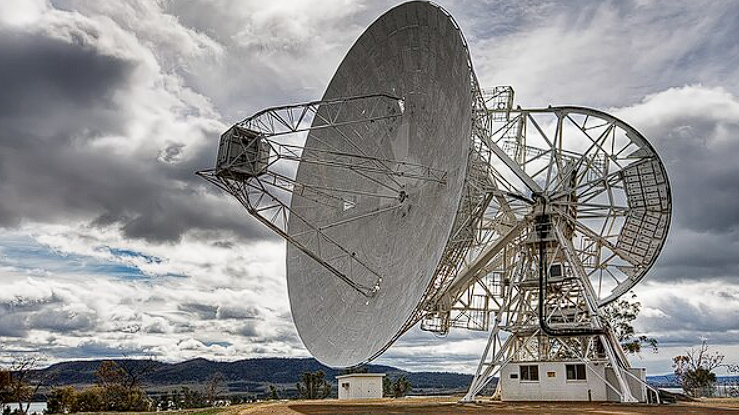A Never-Before-Seen Fast Radio Burst.
Others are reading now
A new and unprecedented type of “fast radio burst” (FRB) has been detected from space, adding to one of the most exciting mysteries in recent decades that has captivated both the scientific community and the general public.
First discovered in 2007, these unusual bursts of radio waves come from far away, sometimes at regular intervals and sometimes with immense power. Known as FRBs, they continue to intrigue experts.
In a recent development, a study published this week by the Royal Astronomical Society of the United Kingdom, and reported by Futurism, reveals that researchers have spotted a never-before-seen burst. Named “FRB 20220912A,” it was captured by the Allen Telescope Array of the SETI Institute (Search for Extra-Terrestrial Intelligence), a facility consisting of forty-two antennas forming a radio telescope in the Cascade Mountains of Northern California. Over two months, the team detected thirty-five radio bursts from a single source.
Also read
Unlike previous FRBs that tended to repeat uniformly, this new burst was noted for its drop in the central frequency of the bursts. CNN described it as a “celestial slide whistle,” an apt metaphor for the phenomenon. The exact nature and cause of this FRB remain a mystery.
“This study is exciting because it confirms both the known properties of FRBs and the discovery of some new ones,” said Sofia Sheikh, an astronomer at the SETI Institute and the lead author of the study, in a statement.
Theories about the origin of these fast radio bursts vary. The most popular suggests that FRBs are emitted by the highly magnetized remnants of a star following its gravitational collapse. If you’re looking to impress your family this Christmas, you might suggest listening to the final signals of a dying celestial body for a dramatic effect.


